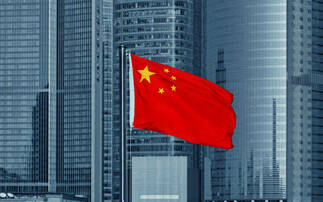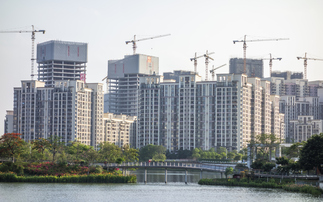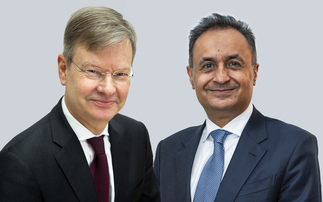Natalie Kenway reports on the global and domestic drivers providing valuable support for Japanese companies.
Japan has been rapidly promoted from 'basket-case' to investor favourite, buoyed by Prime Minister Shinzo Abe's radical plans for economic reform.
The Investment Association reported Japanese equity funds were the third best-selling sector in February, with net retail sales of £173m - the highest figure on record.
Government stimulus measures have undoubtedly given a major boost to Japanese equities, pushing the Nikkei 225 index above 20,000 for the first time in 15 years.
In five to ten years' time, we could be in a place where robots and humans collaborate together in the workplace
However, there is much work to do for Japan's leaders. The spectre of deflation still hangs over the economy, an ageing population is a very real concern, and relations with China remain fragile, albeit improved.
Moreover, although Japan emerged from recession at the end of 2014, recovery for the world's third largest economy is fragile, and growth has been at a slower pace than expected.
According to Neptune Investment Management's Chris Taylor, manager of the £550m Japan Opportunities fund, heavily indebted Japan is relying on its largest corporations to boost earnings and lift the country into a recovery phase.
He said the Japanese government faces "one last roll of the dice" to deal with the debt pile (Japan's gross government debt to GDP level reached 227.2% in 2014 - an all-time high), and improving corporate earnings and tax hikes will be crucial to its success.
Here, we take a closer look at some of the sectors set to benefit from changing consumer behaviour and Japan's global reach, which could help keep the country's recovery on track.
Healthcare
Japan wants to make healthcare a major industry - its pharmaceutical business is now the second largest in the world. In a country where 33% of the population is over 60, placing a major focus on health and drug innovation is understandable.
William Hall, company director of Ipsos Healthcare Japan, said: "It is not very often a prime minister says nice things about the pharmaceutical or healthcare industry.
"Around the rest of the world, the government is killing off its drug industries. In Japan, it is rapidly increasing every year. Keeping people healthy for longer is a key issue and a huge amount of money is being spent on it."
The government has ensured there is no delay in approving new drugs and any drug approved receives a reimbursement too. There are also tax credits for companies funding research and development.
Legg Mason's £276m Japan Equity fund has 37.5% in healthcare, including M3, an internet-based company that connects healthcare professionals with medical research. The company's shares are up 23.8% over the past year.
Manager Hideo Shiozumi said: "Our main themes are the ageing society, which creates opportunities for companies with products and services geared toward the elderly, and the medical and healthcare fields, which are regarded as one of Japan's last remaining growth industries."
Robotics and technology
Japan is considered a world leader in the robotics arena, with the likes of Professor Masatoshi Ishikawa, professor of robotics at Tokyo University, exploring the use of next generation robotic assistants.
"We have liaised with Japanese and European car makers and hope high speed robots will be part of a lot of companies. In five to ten years' time, we could be in a place where robots and humans collaborate together in the workplace," he said.
Yoichi Funabashi, chairman of the Rebuild Japan Initiative Foundation, agrees: "Robotics is another big frontier in a disaster-prone country. Robots will be introduced on a massive scale in an ageing society."
Earlier this month, Toshiba launched a humanoid robot at the information desk of upscale department store Mitsukoshi, which greets customers as they walk in. The female-looking robots were created to appear, talk, and move as humanly as possible.
It has also started careers for humanoid robots in the customer services departments at Bank of Tokyo Mitsubishi UFJ. Toshiba's share price has risen 16% over the past year.
Another well-known company with a global presence in the technology space and specialising in the entertainments industry is Sony.
Shares at the company are up 72% over the past year, but over five years they are down 13.8% as it has struggled against the rising fortunes of South Korean competitors, including Samsung.
Matthew Brett, manager of the £664m Baillie Gifford Japanese fund, said it is a stock he has been paying close attention to.
"The brand is a lot stronger and Sony is doing some pretty innovative stuff involving the PlayStation and Xperia phones," Brett said.
Sony sells 20 million PlayStation 4 units a year. It is also the world's largest music publishing house, representing the likes of Celine Dion, One Direction, and Beyonce, and owns two million copyrights, including material by The Beatles and Taylor Swift.
The company has also started producing 4K cameras and TVs, which offer four times as much detail as full HD televisions.
Autos
According to data from Asia broker CLSA, the autos and banking sectors saw some of the largest pre-tax profits in 2013 and 2014.
This is not surprising with brands like Toyota, Hyundai and Honda being major players in the global market and benefitting from the weaker yen. Toyota is a favourite among fund managers with Neptune's Taylor investing 4.5% of his Japanese Opportunities fund in the stock.
Meanwhile, Andrew Rose holds 4.9% of the £1.7bn Schroder Tokyo fund in the company. This makes Toyota the largest position in both Taylor's and Rose's portfolios.
Taylor is particularly keen on the carmaker on the back of its recently-launched fuel cell vehicle. Toyota has had lots of orders for the car, but only has capacity to make three a day. It is aiming to shift 700 units by December this year.
"It will catch the rest of the auto industry out as it is the first to market and only two other companies have the technology. Everybody else has to come to Toyota. These cars break the stranglehold of oil exporters as they do not need oil," Taylor said.
Over the past year, Toyota's shares are up 56%.
Retailers
Japan's retail sales picked up at the start of 2014, according to Japan's Ministry of Economy, Trade and Industry. The month-on-month sales figure rose 6.5% in March last year.
However, the government then increased consumption tax from 5% to 8%, causing retail sales to nosedive 13.6% in April. Sales did pick up again towards the end of last year, but remain muted in 2015.
However, there are some key areas benefitting from the boom in tourism and Japanese consumers' changing shopping habits.
Jupiter's Simon Somerville, manager of the £496m Japan Income fund, commented: "One area of change that cannot be ignored is tourism. In February 2011, before the March earthquake, Japan welcomed 679,000 foreign tourists, but this fell dramatically to only 295,000 in April.
In January 2015, there were 1.2 million tourists, so essentially double from pre-earthquake levels.
"These tourists are spending, travelling, and basically boosting the Japanese economy."
Shares in designer department store chain Isetan Mitsukoshi, a holding in Robin Geffen's £448m Neptune Global Equity fund, have soared over 80% in the past year thanks to an influx of Chinese tourists.
Convenience stores such as 7-Eleven are also seeing a pick-up in popularity. Nigel Muston, retail analyst at CLSA, said 7-Eleven and supermarket chain Ito-Yokado, both owned by Seven & i Holdings, are tempting shoppers with impulse buys in their stores.
"Convenience stores such as 7-Eleven are much more popular as mothers are returning to the workplace quicker and people are living alone - they do not want to bulk buy. The higher prices in these smaller stores means higher margins."
It is a similar scene in Ito-Yokado. Among the aisles of food and drink, shoppers will find clothes, shoes and household items, as well as areas dedicated to arcade machines.
These kinds of stores have also been popular with Chinese tourists. For example, nappy maker Kao had to limit customers to two packs of nappies as the Chinese were snapping up the higher quality brand in droves to take home.
Natalie Kenway recently visited Japan as a guest of Neptune IM














